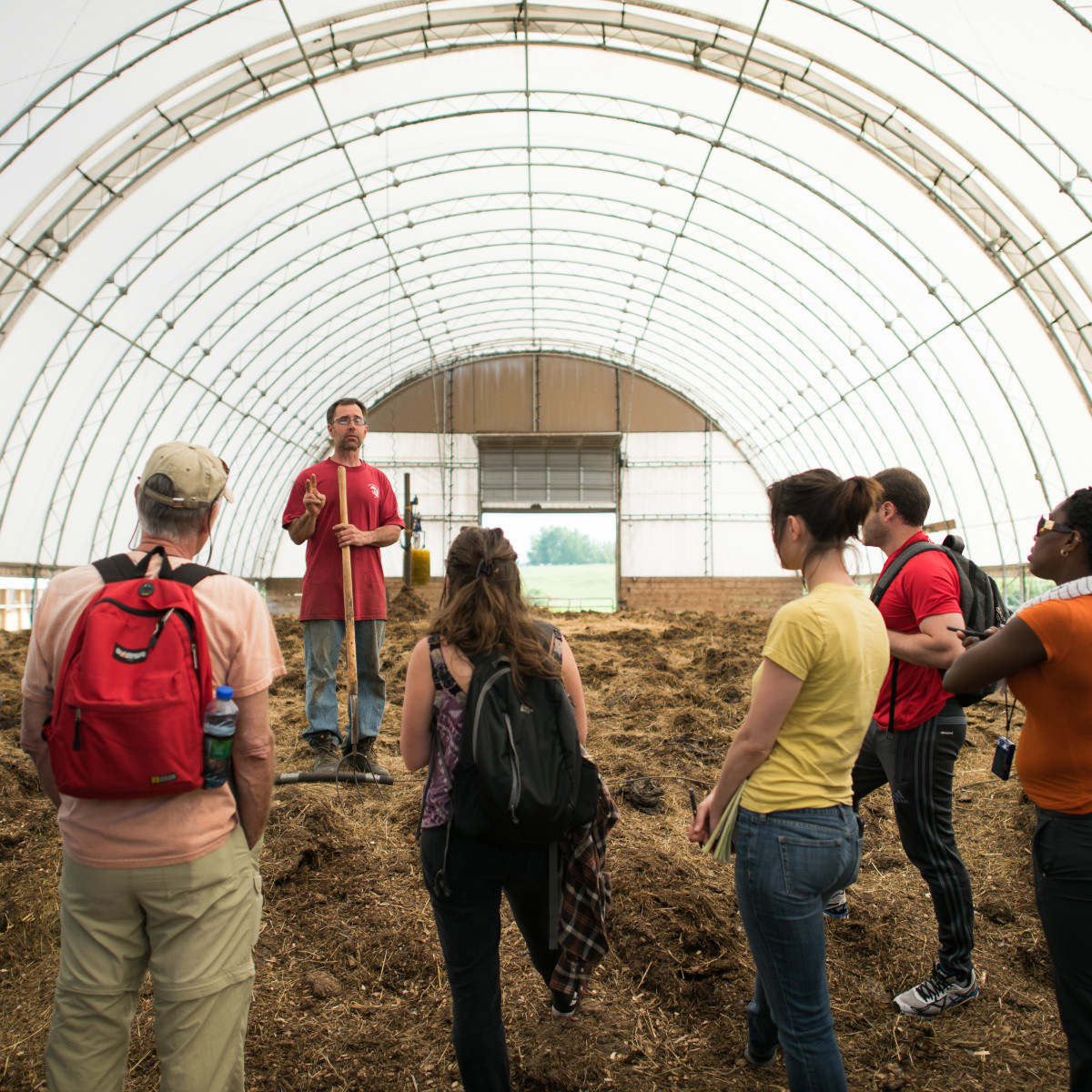Overview
Agroecology is gaining influence in a diversity of academic, political and advocacy spaces worldwide
The course seeks to provide students with both conceptual and practical content, covering the evolution of the field of agroecology, from its origins to the present, as it gains increasing recognition in scientific, policy, social movement and farming spaces. Students will engage in some of the debates agroecologists are now facing, as they grapple with maintaining the core characteristics of the field as it is increasingly applied by a wide diversity of actors. A special emphasis is placed on discussing the different expressions of agroecology as a science, a social movement and a practice. We will consider the intersections of agroecology and transdisciplinarity, as we integrate different knowledge systems to search for solutions to the current challenges of our agrifood systems. And finally, we will explore the use of participatory action research (PAR) and agroecology principles, as an essential approach to agroecological research and practice. We will cover international and domestic geographic perspectives, and examine, more in- depth, agroecology and PAR with 3-4 local Vermont farms.
COURSE DAYS & TIMES:
- Fall 2024 Semester: August 26 – December 6
- Meets online. Days/times TBD.
By the end of this course, students will be able to:
- Describe the state and evolution of the field of agroecology and engage in the debate on agroecology’s dimensions as a science, a social movement and a practice
- Understand and apply a principles-approach to agroecology
- Understand some of the opportunities and challenges of applying agroecology and PAR in three local Vermont farms
- Understand the challenges and opportunities of applying agroecology as a transdisciplinary, participatory and action-oriented approach
- Engage in active peer-to-peer learning with fellow classmates, instructors and guests.
Students taking it as a non-credit course will receive a Digital Badge signifying completion of the course.
Curriculum
Introduction to Agroecology provides an in-depth overview of research and applications in the field of agroecology, with a focus on conceptual and analytical content.
Course Structure:
Module 1: Agroecological Foundations
Learning Goals:
- Understand the origins and evolution of agroecology, and why it is now perceived as a science, movement and practice.
- Compare agroecological perspectives, also known as agroecologies and identify key examples.
- Identify the challenges and opportunities of applying agroecology as a transdisciplinary, participatory and action-oriented approach.
Module 2: Principles-based Approaches in Agroecology
Learning Goals:
- Understand the history of the application of principles in agroecology.
- Gain knowledge of the different agroecological principles frameworks that are currently being used globally.
- Learn from a case study ‘in progress’, which is applying a principles-based approach to agroecology.
Module 3: Co-creation of Knowledge in Agroecology
Learning Goals:
- Understand the concept of co-creation of knowledge in agroecology.
- Learn about international examples of knowledge co-creation in agroecology.
- Co-learn with guest lecturers working on international knowledge co-creation in agroecology.
Module 4: Context matters – from theory to practice
Learning Goals:
- Connect previous theoretical conversations with relevance to decision-making in our own lives and local food systems.
- Explore agroecology in practice on three Vermont farms.
- Engage in active peer-to-peer learning with classmates and farmers.
- Consider the viability of agroecology for food systems transformation in the Vermont context and in your context.
Cost & Time
For more information and answers to common questions regarding payment see our FAQ.
FAQ
Identifying the most viable and sustainable ways to improve our agrifood system remains one of the most important challenges of our time. While there are no magic bullets, the field of Agroecology is a demonstrated, holistic approach that addresses the social, ecological and production challenges of current agrifood systems.
The field of agroecology is gaining influence in a diversity of academic, political and advocacy spaces worldwide. In 2014, for the first time in its history, the U.N. Food and Agriculture Organization (FAO) held an International Symposium on Agroecology for Food Security and Nutrition. Agroecology has also received endorsement from La Via Campesina, and the Journal of Sustainable Agriculture was recently renamed as Agroecology and Sustainable Food Systems (Gliessman)—demonstrating that groups of peasant farmers, scientists, and international policy makers are each convinced of agroecology’s value and potential. This increased attention has brought with it a call for empirical research about the performance of agroecological practices and a demand for training in agroecological principles. In response to these demands, we have developed a rigorous and practical option that offers a foundation in agroecology, opportunities for research, and a design that makes it accessible to students, international audiences, and mid-career professionals.
Workload for this course, including readings and assignments typically amounts to 6-8 hours per week.
If you are a non-credit student seeking accessibility support, please email access@uvm.edu and the UVM Student Accessibility Services team will be able to assist. In your email, please include that you do not have a 95 number/NetID.
- Have questions about taking an online or distance education course? Visit the Online and Distance Education FAQ page
- Have more basic questions about Professional and Continuing Education? Visit our About Us and FAQs pages.
The program fee for non-credit students is $750.
To reserve your seat, you have the option of paying in full by credit card, or by making a minimum payment of $500 at registration. Note that the balance must be paid two weeks prior to the start of this offering and you will receive email reminders if you have a balance due. We do not offer payment plans for this program.
If you need to cancel your attendance for this course, you must notify us via email at noncredit@uvm.edu at least three business days prior to the start date of the course to receive a full refund, less a $25 cancellation fee. If a medical condition necessitates cancellation/withdrawal (documentation provided), this will be reviewed by our Studies Committee for any type of refund.
Students who successfully complete the requirements for this course will receive a digital badge through Credly signifying they have achieved completion.
For those taking the non-credit stand-alone course you receive the knowledge from the course and you may want to go on and further your education. Career opportunities may be available if your employer has asked you to take this course to enhance your career.
The CGSA is meant to be an enrichment of an existing career path, for people that are working in related work that want to complement their knowledge and skills in agroecology.
Non-profits in agricultural development, both nationally and internationally. Examples of international organizations are Groundswell International, Heifer, the Agroecology program of the Food and Agriculture Organization of the United Nations, etc.
Course content is available via Blackboard online to facilitate information sharing outside the constraints of time and place among the cohort of students. This method of teaching design makes it accessible to students, international audiences, and mid-career professionals.We hope you find this information helpful. If you can’t find the answer you are looking for, do not hesitate to contact the Agroecology and Livelihoods Collaborative Team at agroecol@uvm.edu.
Advising and Student Support
You have the goal; we’ll help you achieve it
We are dedicated to helping you access UVM. It is our role to get to know your experience and goals, assist you in choosing courses, guide you through registration, and serve as your resource throughout your time at UVM.
Curious if your past college credits apply at UVM? Want to understand where a program will take you after completion? Looking for resources for financial aid, tutors, or UVM policies? We’re here to help.




